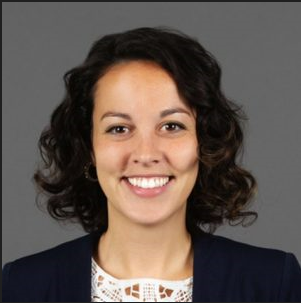Giulia Benedetti, MD
Assistant Professor, Pediatrics
Director, Pediatric Neurocritical Care and Neurohospitalists
(734) 936-4179
Giulia Benedetti is an academic pediatric neurologist, epileptologist, and neurointensivist. While in residency and fellowship training, she began her research career in the field of pediatric neurocritical care. She demonstrated the impact of sedative infusions on neuromonitoring practices in the intensive care unit (ICU)1 and explored the utility of electroencephalography (EEG) monitoring in neonates with mild hypoxic-ischemic injury2. These projects were awarded the best resident and fellow poster presentations at the University of Michigan Neuroscience Day, respectively. These studies were the foundation for her primary interest in clinical research pertaining to pediatric neurocritical care and critical care electroencephalography (EEG)3,4.
Dr. Benedetti’s clinical practice in the fields of pediatric neurocritical care and epilepsy afforded her the expertise required to utilize EEG as a principal neuromonitoring tool in clinical management of critically ill children. She further refined my area of focus to quantitative EEG (qEEG). qEEG uses mathematical signal processing of the raw EEG waveform to quantify different components of the EEG. Her early career work as a fellow and faculty using this method of EEG analysis demonstrated that qEEG combined with clinical and qualitative EEG variables are highly predictive of outcome after pediatric cardiac arrest. After being honored as one of the speakers at the Child Neurology Society Meeting Presidential Symposium (2021) to speak on the topic of the future of EEG in child neurology, she formed the multicenter Pediatric Quantitative EEG Strategic Taskforce (PedQuEST) with her co-investigator, Dr. Craig Press. PedQuEST is a research and clinical practice work group dedicated to advancing brain-focused care of critically ill children using qEEG. Taskforce goals include creation of a centralized research database that will facilitate secure data sharing between participating sites to support advancement of scientific research involving qEEG, education of neurophysiologists and non-neurophysiologists in the use of qEEG to enhance care of critically ill children, and a subgroup which will create standard qEEG terminology, define reporting standards, and investigate normative values for children in the ICU.
Her leadership in the field of pediatric ICU qEEG has received recognition at several society meetings and allowed her to present on the topic on the national stage. She was an invited presenter for the Persyst Grand Rounds lecture series and Child Neurology Society Jack Pellock Resident Seminar on Epilepsy. PedQuEST’s initial multicenter collaborations were presented at the Child Neurology Society annual 2022 meeting, received a Distinguished Poster award at the Neurocritical Care Society meeting in 2022, and will be presented at the 2022 American Epilepsy Society Meeting. Our first publication as a work group became available online in January 2023, and several manuscripts are accepted with minor revisions, under review, or in preparation. These projects focus on identifying qEEG patterns and biomarkers that help predict neurologic outcome inpatient populations including children who are comatose after cardiac arrest, neonates with congenital heart disease undergoing neuromonitoring, and children with new-onset refractory status epilepticus.

